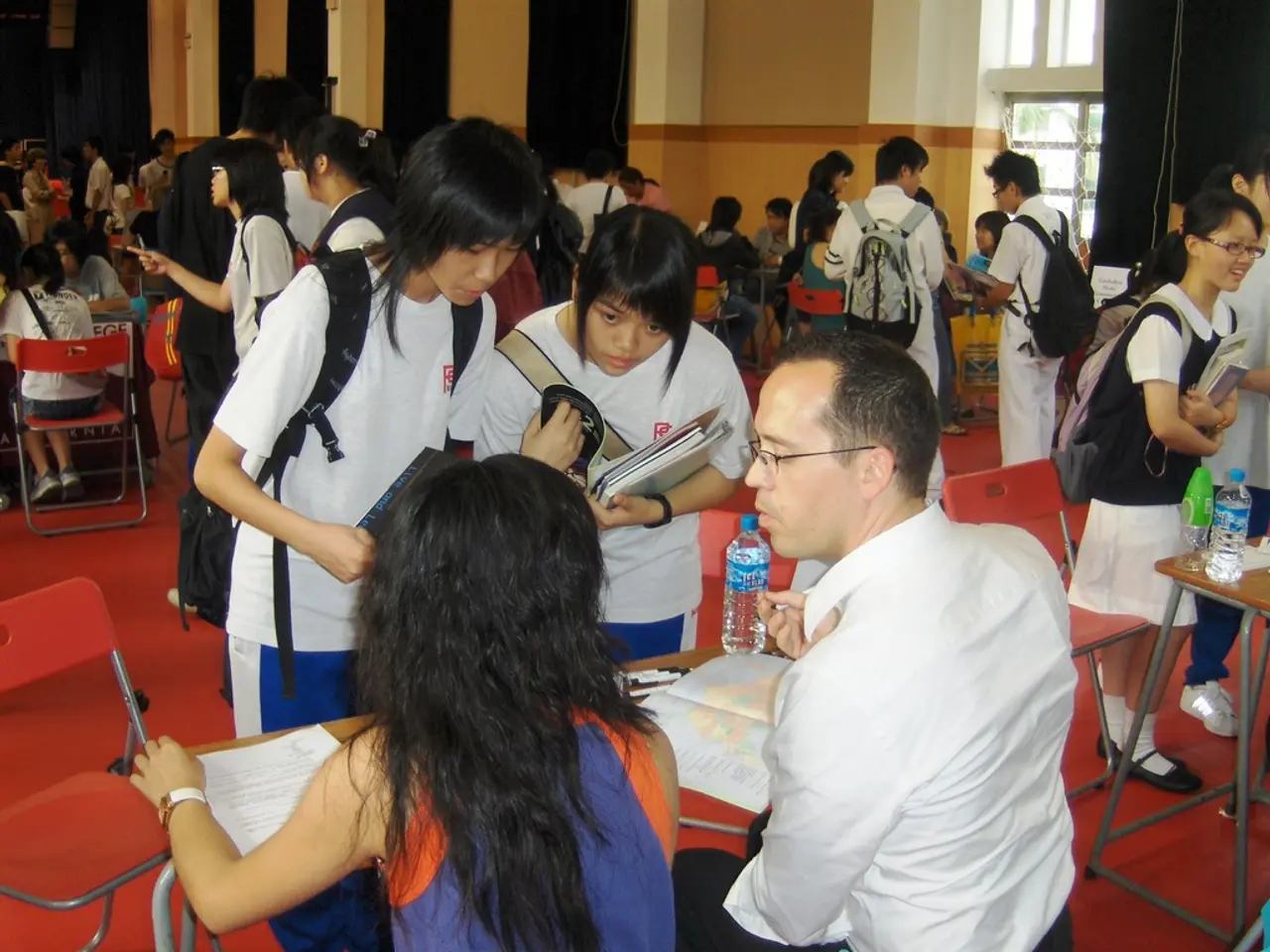Boosting Educational Success via Skilled Evaluation Strategies in Teaching
In the realm of education, assessment practices are undergoing a significant transformation, driven by the integration of technology and a shift towards culturally responsive approaches. These innovative methods aim to simplify logistics, promote engagement, and cater to the diverse needs of students.
Traditionally, assessment practices have been systematic approaches used by teachers to evaluate student learning, skills, and academic performance. Common summative assessment methods include standardized tests, final exams, end-of-term projects, and portfolios. However, alternative assessment strategies are gaining traction, focusing on demonstrating student learning in more dynamic ways, such as portfolios, performance-based assessments, and self-assessments.
The latest trends in assessment practices emphasize equity, inclusion, and adaptability. School districts are forming diverse committees, known as Equity-Centered Evaluation Teams, involving teachers, multilingual services directors, special education specialists, parents, community members, and even students. This inclusive approach ensures that assessment tools and practices reflect the cultural and linguistic backgrounds of the student population, making them more relevant and accessible.
Culturally responsive EdTech Selection Frameworks are another key emerging approach. This six-step process guides districts to choose culturally relevant educational technology by understanding students beyond data, piloting with an equity focus, embedding cultural responsiveness in procurement policies, and maintaining ongoing feedback loops. This transforms technology into an inclusive bridge supporting students' expression of knowledge while preserving cultural heritage.
Advanced adaptive learning systems and AI-powered platforms are central trends, enabling the customization of assessments and instruction to individual learning styles, needs, and cultural contexts. These tools provide microlearning, real-time feedback, and adjust difficulty levels, fostering personalized educational pathways.
Assessments now increasingly include components that measure Social and Emotional Learning (SEL) competencies, which contribute to well-rounded development and consider students' cultural backgrounds and experiences as integral factors affecting learning and performance.
Educators foster culturally responsive environments by encouraging inclusive language, valuing student cultural perspectives, addressing biases and microaggressions, and creating safe spaces for discussion. These practices enable better alignment of assessments with diverse student identities and needs.
In higher education, especially in health sciences, personalized learning incorporates cultural competence by adapting to the cultural and educational context of learners. Research highlights the importance of addressing equity and digital divide to avoid exacerbating disparities in personalized assessment.
Emerging technologies such as Virtual Reality (VR) and Augmented Reality (AR) enhance engagement and provide contextualized, culturally relevant scenarios for assessment, enabling students to demonstrate knowledge in ways resonant with their cultural backgrounds.
The use of digital tools in assessment fosters immediate feedback, enhancing student engagement and learning outcomes. Digital platforms offer a range of functionalities, including test creation, administration, grading, and analytics, enhancing overall assessment practices. Formative assessment techniques gather feedback during the learning process to monitor student learning and adjust instruction.
In conclusion, education systems are leveraging diverse stakeholder collaboration, adaptive AI-driven platforms, immersive technologies, and social-emotional frameworks to create personalized assessments that are culturally relevant and equitable across student populations. This shift from standardized, one-size-fits-all assessments to dynamic, culturally responsive, and technologically empowered practices honours diversity, equity, and the unique strengths of each learner.
- In the evolution of education, e-learning platforms are playing a significant role by adopting instructional strategies such as personalized learning and adaptive learning systems, catering to individual learning styles, needs, and cultural contexts, thereby enhancing learning in the field of education-and-self-development.
- As technology integrates further into assessment practices, the adoption of culturally responsive EdTech Selection Frameworks becomes essential for school districts, as these frameworks promote the selection of technology that reflects the diverse cultural and linguistic backgrounds of students, ultimately simplifying the logistics of learning.




